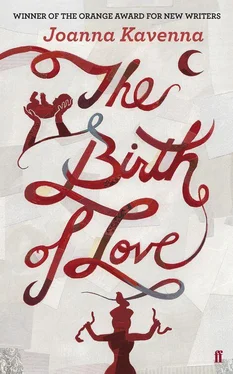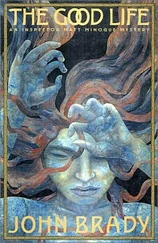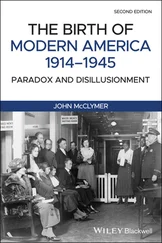‘Some wine, sir?’ said the waiter.
‘Thank you,’ said Michael Stone, and watched as wine was poured into his glass. Then the waiter twisted the bottle, and moved away.
‘Michael,’ Sally was saying. ‘This is Roger Annais, who was speaking about your book this morning on Radio 4. Roger, I haven’t yet been able to hear the programme but I’ve been told you were excellent.’
‘Well, I don’t know about that,’ said Roger Annais, a man with black hair, a sunken face, as if his features had been carved from wax, and were melting slowly. ‘I was just trying to voice my genuine admiration. It’s often easier to demolish something than praise it, I find. One can at least be wry when something is bad. Admiration can start to sound a little … dull …’
‘Thank you for doing that,’ said Michael Stone, in his very soft, dry voice, which, though he cleared his throat, would not resonate, sounded merely like dead leaves crackling. ‘I really am … most grateful.’
‘No need for gratitude. You wrote it, it’s my job to comment on it,’ said Roger, firmly. He took a sip of wine. Michael noticed his veins bulged on his arms, as if he was malnourished. But he was more likely a driven, energetic man. He imagined him, rushing from the studio to his office, his day portioned into meaningful segments. Always he must have an eye on the clock; he must move swiftly, purposefully; a radio interview and then a lunch, and then — Michael wondered what this man would do later. But he was looking back at Michael as he put down his glass, so Michael said, ‘I have been … in recent days I have been a little nervous. I keep wondering if … perhaps … I should not have published this book at all …’ as Sally shook her head.
‘Ah, the misgivings. The opening-night jitters,’ said a man Sally had introduced as ‘Arthur Grey, reviewer and friend …’ And Arthur Grey continued — resting his stocky arms on the table and speaking slowly, careful in his phrasing, as if he was dictating a letter — ‘With my first published book, a novel, I woke at dawn on the morning the first reviews were due. I pulled on my clothes, dashed out, bought all the papers. Dashed back, heart pounding, ha ha! Read through them, couldn’t find a word about it, finally found the briefest imaginable review in The Times . “Not so much a promising beginning as a horrible threat that further carnage may be yet to come …” Ha, ha …!’
And the table laughed. Michael joined in, a false laugh because the story only made him more afraid. If that could happen to Arthur Grey, if this compelling man could be so emphatically dismissed, then what did he think he was doing? But they were lifting up their throats and laughing together, and he didn’t want to show them how he had lost his nerve. So he laughed and tried to swallow some wine.
‘The best review I ever wrote, the most honest, began: “By Mary and the blessed saints, this is a dreadful book”,’ said Roger Annais, and they laughed again.
*
On his right-hand side was Sally Blanchefleur, his agent, co-director of Blanchefleur and Scott, wearing a deep-green dress, gaunt and beautiful, striking at fifty or so, more striking than anyone else in the room. She drew attention away from Michael, with her beauty and her deep-green dress. Just some of the glare, directed towards her elegance; that was a relief. On his left, his editor Peter Kennedy, who had taken up his book, rescued it — he was meant to call him his saviour, he knew. And then an order of the just around him, like a secret society. In recent days he had been ushered around, people gripping his arm, directing him. Shielding him from something — he was not sure what it could be. One moment he felt revived, better than he had in years, and then he simply wanted to run. He didn’t want to be at the centre of anything, felt it might even have been a bad idea, to write books, only tenable when your works were never read. If they printed them up, distributed your efforts — that was a different matter altogether. And then he wondered what it had been for, all those years of suspense and futile endeavour, and being knocked back a hundred times; he wondered why he had bothered with it all. Why had he persisted, and raged against his detractors? He had been so urgent and angry about it all. For years he could hardly read a book, because he was not published. He could not really take pleasure in anything, and then he had grown so angry with his family — really his mother — because she was so foul about it all, told him he was wasting his time, that he would never achieve anything worth the years he had taken over it all. And his father and the callow rest of them backed her up, stood firm against him, as if he was an enemy they must vanquish. A few years ago he wrote a novel in the depths of his rage, hurled everything he could at their piety and hypocrisy, and — even though that novel sank without a trace, like all the others — they never spoke to him again.
*
He had almost stopped thinking about his mother, until that phone call from James. That had been unexpected, a little disturbing, because James had sounded upset, and he was usually so quiet and cold. He had talked about dementia, how their mother had been diagnosed with it, ‘a bad case of it,’ James added, as if there might be another, better sort of dementia. ‘I’m sorry to hear that,’ Michael had said. But he was surprised to discover he felt nothing at all. It was as if they were discussing a distant relative. A month later, James had called again, saying that it would be ‘nice’ if Michael went to see her. ‘She won’t be at home much longer. She has a nurse but soon she’ll have to go into a home.’
‘She’ll hate that,’ Michael had said.
‘She barely knows where she is. She may not notice.’
*
He thought it was odd, that his mother was finally passive, an invalid, to be shunted from one place to another, on the advice of doctors. It was hard to imagine. The only time he felt truly sad about it all was when he received the first copies of his book. Beautiful in their dust jackets, his name on each spine in bold letters. It was an extraordinary moment, and there was no one apart from him who cared. So he sent a copy to his mother, one to his brother. He bound them up, spent a long time writing his mother a little note. Then he took the note out. He put a press release in with each copy, so they might think a functionary had sent them, some hard-working publicity person, not him at all. He hesitated in the post office, then he handed the parcels over.
He had received no response.
*
Yet this morning he was rushing to the door when the phone rang. He grabbed it, thinking it might be Sally, but then he heard James saying, ‘Ah Michael, I thought you might not be at home.’
‘I’m just about to leave …’
‘I was just sent a copy of your book,’ said James. ‘For which, my thanks. I see that today is the date of its official publication. You must be busy …’
‘Yes,’ said Michael, wondering why his brother was always so formal, but then he supposed he was too. ‘How is our mother?’
‘She is being moved into a home in a few weeks’ time.
I’ll send you the details of her address when she has settled in.’
‘All right.’
‘Then if you want to visit …’
‘I don’t think she would …’
‘She’s very different now. You’d see if you came.’
*
The call made him late, so then he had been forced to hurry to the Underground, sweating and certain he would offend them all, but everyone was late, apologising to each other, and it hadn’t mattered. They had drawn him into a private room in an expensive restaurant, where there was a waiter at his elbow, asking would he like the fish or the lamb.
Читать дальше












